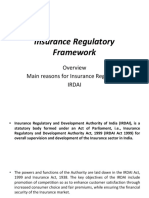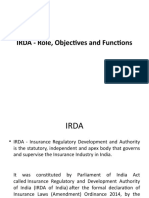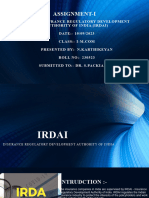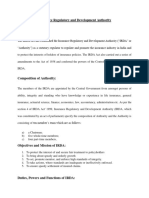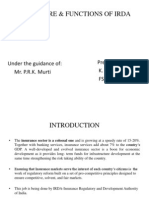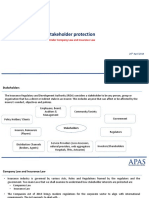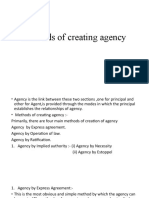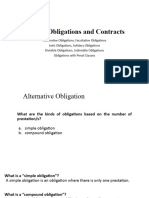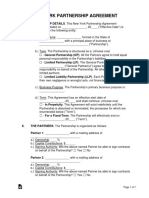0% found this document useful (0 votes)
44 views15 pagesRegulation of Insurance in India
The document discusses the Insurance Regulatory and Development Authority of India (IRDAI) Act of 1999 which established IRDAI as the regulatory body for India's insurance sector. It outlines IRDAI's objectives of protecting policyholders, promoting growth, and maintaining stability. It also describes IRDAI's powers like licensing insurers and regulating product norms. The Act provides for an appellate tribunal to hear appeals on IRDAI decisions.
Uploaded by
sanuja dashCopyright
© © All Rights Reserved
We take content rights seriously. If you suspect this is your content, claim it here.
Available Formats
Download as PDF, TXT or read online on Scribd
0% found this document useful (0 votes)
44 views15 pagesRegulation of Insurance in India
The document discusses the Insurance Regulatory and Development Authority of India (IRDAI) Act of 1999 which established IRDAI as the regulatory body for India's insurance sector. It outlines IRDAI's objectives of protecting policyholders, promoting growth, and maintaining stability. It also describes IRDAI's powers like licensing insurers and regulating product norms. The Act provides for an appellate tribunal to hear appeals on IRDAI decisions.
Uploaded by
sanuja dashCopyright
© © All Rights Reserved
We take content rights seriously. If you suspect this is your content, claim it here.
Available Formats
Download as PDF, TXT or read online on Scribd
/ 15

